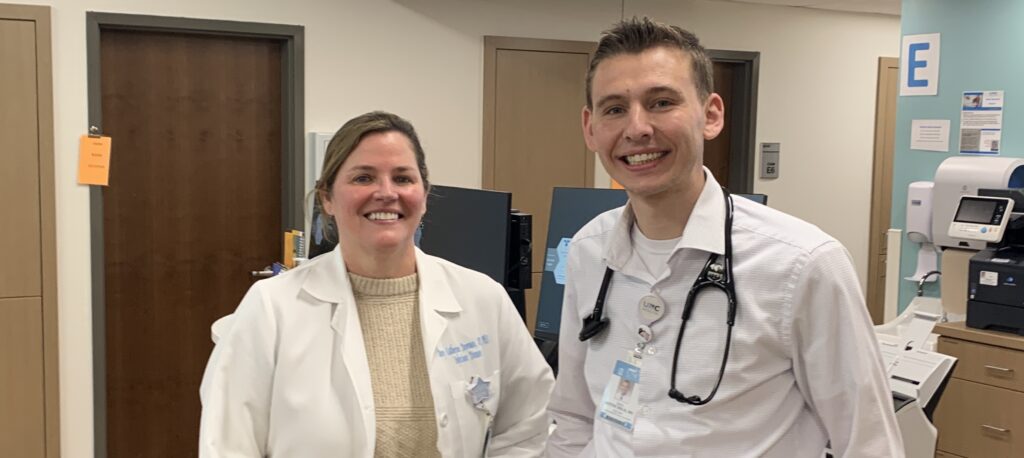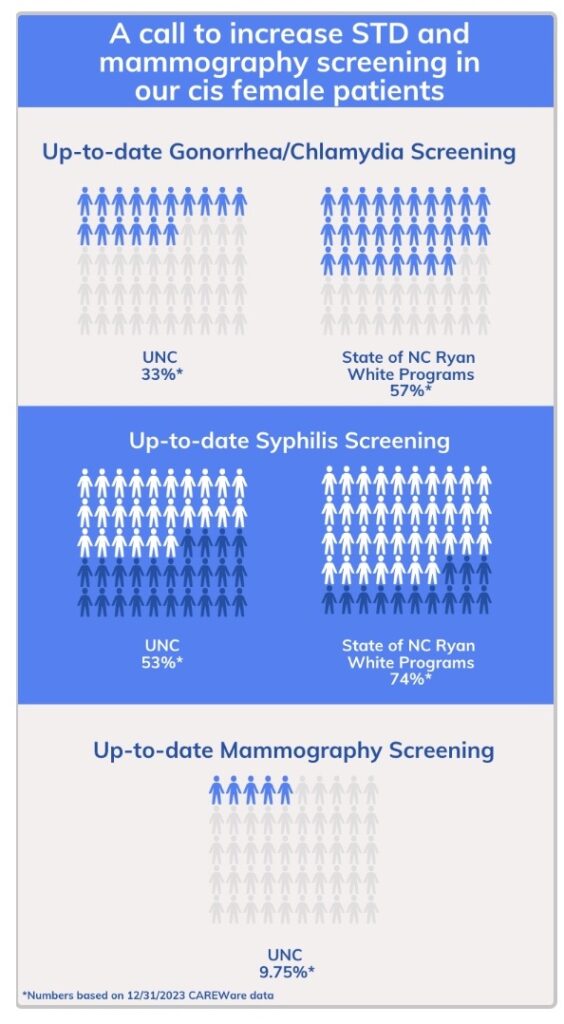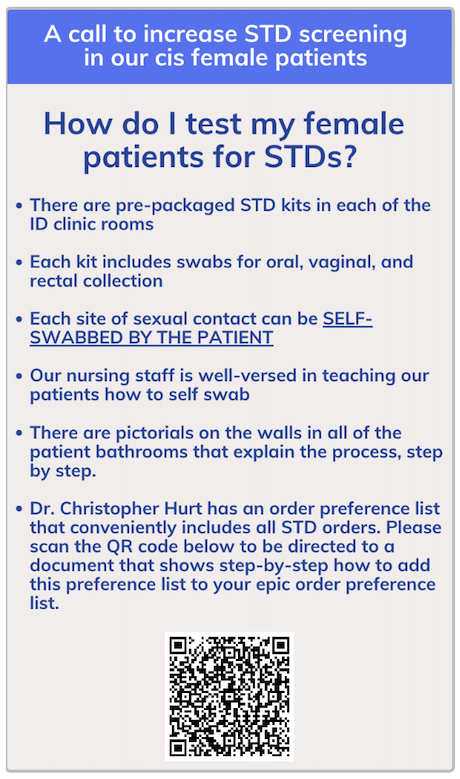The Division of Infectious Diseases has introduced a new Continuous Quality Improvement (CQI) project designed to increase STD and mammography screening in HIV positive cis-female patients. As rates of STDs continue to rise in the U.S., with CDC data showing increases year after year, patients with HIV historically have lower rates of screening mammography, not only because of their HIV status but also because of other social determinants of health. Having an HIV diagnosis offers opportunities for medical interactions that encourage mammography.

Led by first-year infectious diseases fellow Gregory Rothchild, DO, the CQI team chose to launch the project in March to coincide with Women’s History Month.
“Compared to other North Carolina Ryan White Programs, STI and mammography screening rates are less than ideal at the UNC Eastowne Infectious Diseases Clinic,” Rothchild said. “Our CQI project outlines the need and a plan of action that will improve screening rates for STD and mammography in our HIV (+), cis-female patients.
 “The launch consists of a series of emails introduced over four weeks that outline clinic statistics and explain why screening is important. They also describe how we plan to implement a new patient questionnaire used as a reminder for providers to order screening.”
“The launch consists of a series of emails introduced over four weeks that outline clinic statistics and explain why screening is important. They also describe how we plan to implement a new patient questionnaire used as a reminder for providers to order screening.”
A Call to Increase Screening
The first email revealed the statistics of STD and mammography screening rates at UNC Eastowne Infectious Diseases Clinic vs other North Carolina Ryan White Programs, highlighting why the CQI project is particularly important to the Infectious Diseases group.
Why We Care
The second email introduces a link to the “Clinical Practice Guidance” for individuals with HIV. It explains why ID physicians need to order STI and mammogram screening.
- 1 in 5 people in the US have an STD at any given time.
- On average, 60% of patients diagnosed with a STD are asymptomatic.
- 1 in 8 women will be diagnosed with breast cancer during their lifetime.
How We Will Screen
 The third email links to the specificity and sensitivity of self-swab STD testing in cis-female patients. It also provides education, explaining the accuracy and ease of obtaining specimens for STD testing.
The third email links to the specificity and sensitivity of self-swab STD testing in cis-female patients. It also provides education, explaining the accuracy and ease of obtaining specimens for STD testing.
A New Questionnaire
The fourth email explains the roll out of the new patient questionnaire that highlights six questions to help identify a patient who needs STI and mammography screening.
“As a recent graduate of an internal medicine residency program, I am very familiar with the interconnectedness of various medical conditions, outside of the realm of Infectious Diseases, and their impact on patients’ overall well-being,” said Rothchild.
“These projects present an exciting opportunity for the CQI team, leveraging my recent learnings and contribute meaningfully to the pursuit of excellence in healthcare delivery.”